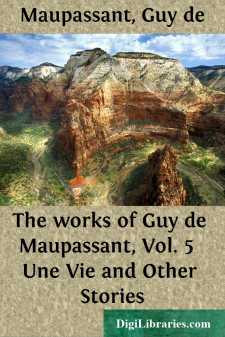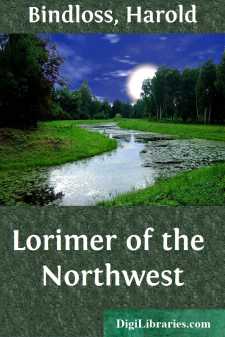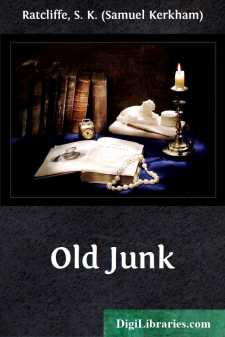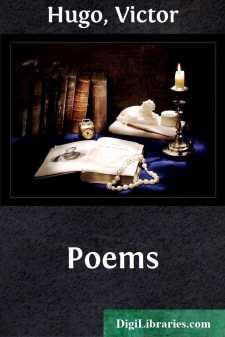Categories
- Antiques & Collectibles 13
- Architecture 36
- Art 48
- Bibles 22
- Biography & Autobiography 813
- Body, Mind & Spirit 142
- Business & Economics 28
- Children's Books 17
- Children's Fiction 14
- Computers 4
- Cooking 94
- Crafts & Hobbies 4
- Drama 346
- Education 46
- Family & Relationships 57
- Fiction 11829
- Games 19
- Gardening 17
- Health & Fitness 34
- History 1377
- House & Home 1
- Humor 147
- Juvenile Fiction 1873
- Juvenile Nonfiction 202
- Language Arts & Disciplines 88
- Law 16
- Literary Collections 686
- Literary Criticism 179
- Mathematics 13
- Medical 41
- Music 40
- Nature 179
- Non-Classifiable 1768
- Performing Arts 7
- Periodicals 1453
- Philosophy 64
- Photography 2
- Poetry 896
- Political Science 203
- Psychology 42
- Reference 154
- Religion 513
- Science 126
- Self-Help 84
- Social Science 81
- Sports & Recreation 34
- Study Aids 3
- Technology & Engineering 59
- Transportation 23
- Travel 463
- True Crime 29
Sort by:
by:
James O'Leary
CHAPTER I. There was once a man named Calphurnius, the son of Potitus, a presbyter, by nation a Briton, living in the village Taburnia (that is, the field of the tents, for that the Roman army had there pitched their tents), near the town of Empthor, and his habitation was nigh unto the Irish Sea. This man married a French damsel named Conchessa, niece of the blessed Martin, Archbishop of Tours; and...
more...
The most robust and masculine of recent French novelists is a typical Norman, sprung from an ancient noble family, originally of Lorraine, but long settled in the Pays de Caux. The traveler from England towards Paris, soon after leaving Dieppe, sees on his left hand, immediately beyond the station of St. Aubin, a handsome sixteenth-century house, the Château de Miromesnil, on a hill above the railway....
more...
FOREWORD It is with great pleasure I accede to the request of Canon Scott to write a foreword to his book. I first heard of my friend and comrade after the second battle of Ypres when he accompanied his beloved Canadians to Bethune after their glorious stand in that poisonous gap—which in my own mind he immortalised in verse:—O England of our fathers, and England of our sons,Above the roar of...
more...
by:
Harold Bindloss
PROLOGUE Fairmead, Western Canada. It is a still, hot day in autumn, and there is a droning of mosquitoes where I sit by an open window, glancing alternately out across the Assiniboian prairie and somewhat blankly at the bundle of paper before me, ready to begin this story. Its telling will not be an easy matter, but one finds idle hours pass heavily after a life such as mine has been, and since the...
more...
by:
Lewis Carroll
Chapter I Alice was beginning to get very tired of sitting by her sister on the bank, and of having nothing to do: once or twice she had peeped into the book her sister was reading, but it had no pictures or conversations in it, and where is the use of a book, thought Alice, without pictures or conversations? So she was considering in her own mind, (as well as she could, for the hot day made her feel...
more...
by:
Honore de Balzac
THE DESERTED WOMAN In the early spring of 1822, the Paris doctors sent to Lower Normandy a young man just recovering from an inflammatory complaint, brought on by overstudy, or perhaps by excess of some other kind. His convalescence demanded complete rest, a light diet, bracing air, and freedom from excitement of every kind, and the fat lands of Bessin seemed to offer all these conditions of recovery....
more...
THE 'BLUE PETER' Ding ... dong.... Ding ... dong. The university bells toll out in strength of tone that tells of south-west winds and misty weather. On the street below my window familiar city noises, unheeded by day, strike tellingly on the ear—hoof-strokes and rattle of wheels, tramp of feet on the stone flags, a snatch of song from a late reveller, then silence, broken in a little by...
more...
by:
Various
"Hello, Foster, what's that you're doing?—shooting with a bow and arrows?" "Yes, Stuart made 'em for me. Come in and try 'em." Harry came into the yard, where Foster was shooting at a collar box placed on a grassy bank, and made a few unsuccessful shots at twenty yards, when Foster took the bow, and hit the box frequently, to Harry's wonder and envy....
more...
I. The African Coast I She is the steamship Celestine, and she is but a little lady. The barometer has fallen, and the wind has risen to hunt the rain. I do not know where Celestine is going, and, what is better, do not care. This is December and this is Algiers, and I am tired of white glare and dust. The trees have slept all day. They have hardly turned a leaf. All day the sky was without a flaw, and...
more...
by:
Victor Hugo
Towards the close of the First French Revolution, Joseph Leopold SigisbertHugo, son of a joiner at Nancy, and an officer risen from the ranks in theRepublican army, married Sophie Trébuchet, daughter of a Nantes fitter-outof privateers, a Vendean royalist and devotee. Victor Marie Hugo, their second son, was born on the 26th of February, 1802, at Besançon, France. Though a weakling, he was carried,...
more...











